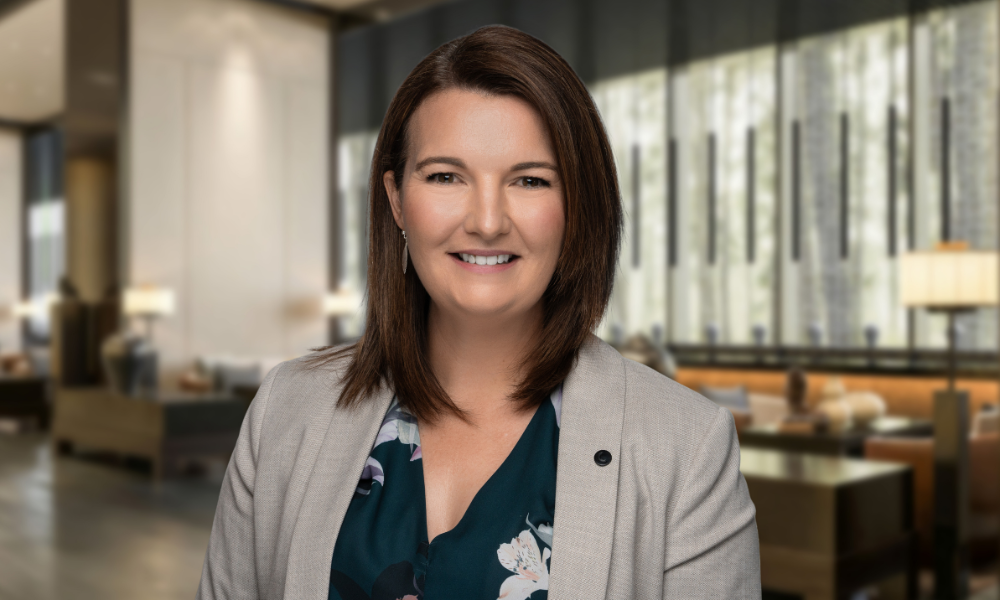
HIND Management CPO to talk about reducing turnover at National HR Summit New Zealand

In an industry with an average tenure of less than a year, Phillipa Gimmillaro knows only too well the challenges of retaining good staff.
As CPO at HIND Management, she’s proud of initiatives rolled out which are helping to reduce staff turnover.
Purpose, mission and authenticity have been keys to the strategy, she says.
“I'm really passionate about employee experience and making sure we’re delivering an authentic service to our people,” says Gimmillaro, who will be speaking on the subject of successfully retaining employees at the upcoming National HR Summit New Zealand.
“It’s important that if we're saying something in recruitment advertising, it does actually feel like that once you’re in the organisation and that there’s a true feeling of connection and belonging.”
Risk of burnout significant
In creating the strategy for its 600 employees across a support office and eight hotels, Gimmillaro says it’s been important to listen to employees and communicate progress.
“The hard mahi comes from creating those structures and removing barriers, making sure you're asking the really difficult questions of people, including of the executive team, allocating budget to the areas that are actually going to make a difference. And being brave enough to call out things that you think aren't quite right.”
With four of HIND’s hotels operational as MIQ facilities during the pandemic – right through until July 2022 - many staff were at the front line and risk of burnout was significant, she says.
“We really dialled up the care and delivery to our people, getting to know them on a really deep level, and helping them to work through some of the wellness and wellbeing elements. We had virtually no turnover during the period of MIQ and I think that’s because people pulled together as a team, they really looked out for each other.”
L&D a significant focus
Team-building events were organised online during this period, including learning groups. And L&D has continued to be a significant focus - to the extent that in August last year, HIND created a department dedicated to this. The new person overseeing this swiftly introduced a management mentoring programme, which has proved highly effective, says Gimmillaro.
“This has been absolutely incredible to be part of,” she says. “We piloted it first of all, but within a month realised it’d grown legs and taken off. We've heard through feedback it's broken down silos. Also, people have upskilled and been able to get promotions. It's an absolute winner for us.”
The mentoring system is internal, with extra consideration given in pairing up mentors and mentees with regards to diversity, says Gimmillaro.
“We also have an option for reverse mentoring. So anyone who's got a particular skill is able to step up. For example, we are looking at getting our employer brand on TikTok so we had someone from our junior team present to our wider team on this.”
Broadening talent pool
In an organisation where the average age is 33, and employees range from those who are 16 years old to some who have been with the business for 40 years, Hind Management’s also been looking to widen its talent pool.
“We've identified that a lot of younger people are attracted because of the flexibility of hospitality,” she says.
“But what we're looking to do is also attract those closer to retirement age because we know people are also looking for ways to step into retirement with more flexibility, perhaps part-time or casual work.”
HIND is working on its DEI strategy in other ways too, supercharging it through 2023, says Gimmillaro, with actions fuelled by feedback from team members. Additional changes include engaging with Māori cultural advisors to strengthen Te Ao Māori principles within the company, and adapting its framework to better accommodate LGBTQI+ team members.
Wellbeing surveys
“We also have an accessibility workflow where we employ people with disabilities and access needs, so we've got a couple of different talent pools we lean into, and that diversity is working well for us,” she says.
Post Covid, wellbeing surveys were ramped up to every three months, a strategy which has proved extremely beneficial with the younger generation, says Gimmillaro.
“We’re really listening to our employees and then acting as quickly as we can because we know that, particularly with the younger generation, they want action. For them, recognition and praise is required almost within the same shift rather than once a month or every three months. So it's not enough to do an annual survey - you need to be listening and talking to your team much more regularly now.”
Retention strategies paying off
As things settle post-MIQ and The Great Resignation, the initiatives to manage retention are paying off, she says.
“In 2023, our average tenure was 21 months, which is an increase on average of five months on the previous year. While that may not seem like much, it’s almost three times the average for hospitality.
“I’m really proud of the work we do. Through our wellbeing and our ENPS scores over the last couple of years, we can see that the reasons people stay and love working here is that connection, the authenticity and the care between the team members. There's a real sense of family and belonging not only within the team, but also right across the organisation.”